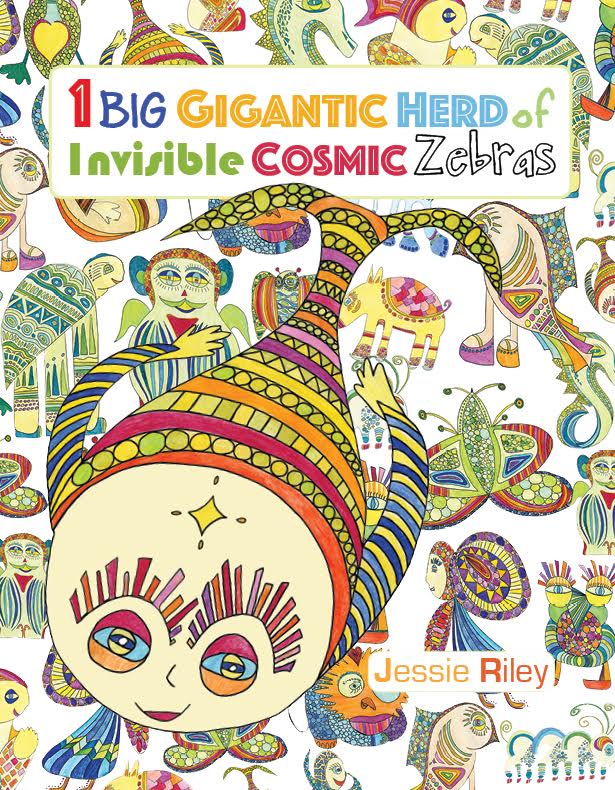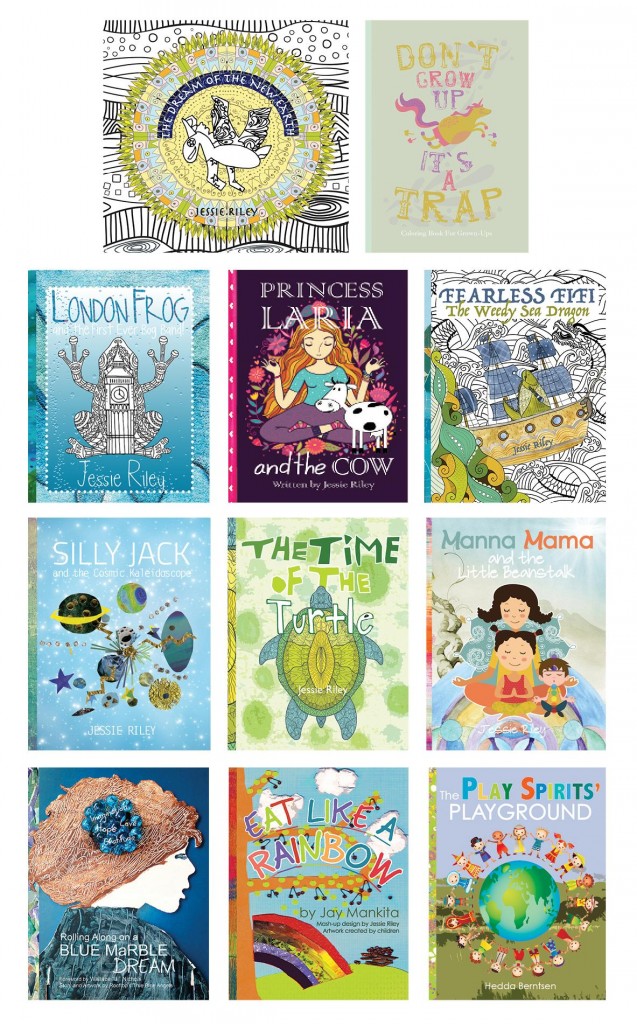 Concussion and traumatic brain injury have always been a part of professional sports, but it’s only in recent years that awareness and activism has grown up around the issue. Jessie Riley, our Teach Believe Inspire award winner for January, has experience on both sides of history. Keep reading for her reflections on life as an athlete before TBI awareness, her excitement for the future of her company Kitanie, and the epiphany she experienced from a simple coloring book.
Concussion and traumatic brain injury have always been a part of professional sports, but it’s only in recent years that awareness and activism has grown up around the issue. Jessie Riley, our Teach Believe Inspire award winner for January, has experience on both sides of history. Keep reading for her reflections on life as an athlete before TBI awareness, her excitement for the future of her company Kitanie, and the epiphany she experienced from a simple coloring book.
What do you remember about the aftermath of your first concussion? Did your family or coaches express any concern when you immediately got back on the ice?
I don’t remember the accident, or hitting the wall. I just remember stepping on a block coming out of the turn at full speed and then waking up with my coach looking down at me lying on the ice. He helped me up, but it was all a blur because I was so dizzy. I went back to the Olympic Training Center, but when I saw the trainers, there was never any mention of concussion or even neck injury. They just told me to rest. I remember my coach had to drive me home because I was too dizzy to function. But that was it. No tests were done. No x-rays. I completed in the US Olympic Trials two weeks later and came in 12th place. The top 6 made the Olympic team.
Did you know any other athletes on a personal/professional basis who had experienced a head injury similar to yours?
People crash into the wall all the time in short track speed skating. But back then, it wasn’t even looked upon as a dangerous sport. Crashing was just something you did. I never heard anyone ever talk about the danger, except one other skater did break her back.
How did you feel when your first doctor diagnosed your post-concussion symptoms as anxiety?
Well, my first doctor was an orthopedic surgeon who had helped the speed skater who broke her back. I didn’t go to him until almost two years after my crash because that was when my symptoms really started to get worse. He x-rayed my neck and was amazed at what he found. He told me that my neck was essentially halfway to being broken and that I was “extremely lucky.” He said my athleticism saved my life. I had no clue it was that bad! He told me I would have arthritis all my life but didn’t think being dizzy could be a symptom. He also said the injury was enough to cause me a lot of pain, but not really enough to do surgery on. So, because of that, it was a tricky injury to treat.
I went to many other doctors trying to figure out why I had visual problems, brain fog, cognitive issues, and was feeling dizzy but they basically ALL told me “nothing was wrong” and that I had anxiety.
-The ear, nose and throat doctor told me my tests were normal.
-Two different neurologists told me nothing was wrong.
-The audiologist told me my hearing was normal.
-My eye doctor told me my prescription was correct, even though I could barely read anymore because the words were jumping all over the place and I would get headaches.
-The psychologist told me it seemed all my symptoms were the result of physical issues and I didn’t have any mental problems.
-All my brain imaging tests came back normal (MRI, CT scans, etc).
Between the onset of your symptoms and your correct diagnosis in 2015, did anyone ever raise the possibility that your symptoms had to do with your past head injury?
There was never any mention of concussion. Not ever once. So I wasn’t ever thinking about my symptoms in those terms.
As information has been revealed over the past few years about the long-term effects of concussion (and the cover-ups in many professional sports organizations), did your perspective on your own athletic career change at all?
Growing up, people always told me sports were so good for my body. But looking back, I know sports almost killed me and I live every single day with this neck injury and post-concussion syndrome.
I have a lot of fond memories of speed skating, though. It was really an idyllic childhood and I got to travel all over with an amazing group of people. I can’t imagine not having that experience.
But it’s really hard living with chronic pain and dizziness for the rest of my life as a trade-off for that amazing experience.
What were your feelings when you experienced your second concussion?
At first I just couldn’t believe that I ran into another wall at such a force and that it was happening to me all over again. I had a lot of fear for what was ahead. But the second concussion experience was so much different from the first. It was like all the doctors knew exactly what I was going through from day one.
Getting referred to the behavioral optometrist was the biggest blessing of my life! I had searched for literally almost 20 years, looking for a reason for why my eyes bounced around, why I got dizzy in the grocery store, why I got headaches. And he told me he knew the reason why those things were happening to me in the first 20 minutes of meeting him!
You can imagine how this made me feel. Because of him I felt hope there was a solution to my symptoms for the first time in my adult life!
It’s not that my symptoms will now just magically go away, because they will probably be chronic forever. But it’s just having the knowledge of what is going on that is so key to starting my full recovery.
I now know why something is happening when it happens and I can change how I react to the symptom because I know what it is and there are exercises (like coloring!) that can help strengthen and rebuild some of the visual impairments I’ve been struggling with for so long.
I’m also going to vestibular therapy now and at the first two appointments, I just couldn’t stop crying. Not because I was in pain, but I just couldn’t believe I had found the answer I was looking for all this time. I was so grateful!
As you can imagine, it’s been a very long and emotional journey for me. I might still have a long road ahead, but now I have a lot of support and tools to help me along.
When your doctor suggested that you try coloring as a way to help your brain heal, did you have any reluctance? Were you surprised by how much you enjoyed it?
When the doctors told me this I initially was like, “Wait, what? Coloring will help my brain recover? Wait, what? I own a coloring book company. Okay, please explain more!” (smiles) As you can imagine, I was kind of obsessed from that moment on to learn everything there was to learn about how coloring can help heal the brain after concussion.
I was also very much in awe of the universe. I mean, I basically color for a living and I’m a two-time concussion/TBI survivor… and now these two things are coming together for me in a way that I never planned. I just have to trust that the universe has a bigger plan for me and go with it. Learning about how my coloring books can help others in this amazing way was another happy yet emotional moment for me after a long time of struggle.
How do you create the stories/messages in Kitanie coloring books?
I think my brain changed after my first concussion and became more visual in a way. I think more with images than with words. Because of this, the stories that I write and publish generally just “come to me” – in a dream or during a walk. I never really set out to write a book about something specific. Whatever pops into my brain is what I create next.
Do you take your coloring books with you/use them publicly? What kind of reactions do people have when they notice you coloring?
People who see my coloring books always respond similarly and it brings a smile to my face. “Wow, these books are so cool! You do this for a living? That is my dream job!” Everyone seems to be in love with coloring. It makes me happy.
What are your long-term hopes for Kitanie coloring books?
I would love to be able to continue to reach more and more people with my coloring books who have been affected by brain injury and concussions – and to share my story with them and bring them HOPE.
I also have a dozen more books lined up in my head waiting to be published. In the coming months, I hope to be able to find the time, money and resources to make those books happen.
I’ve been through a lot since my accident and I have a lot of restrictions in my life as the result of both of my concussions, but Kitanie is my “happy place” where I am so completely free to create anything I want. In the dream world, the possibilities are endless. It’s a very happy place for me that I now want to share with a greater number of people.
[button style=”btn-default btn-lg” type=”link” target=”true” title=”Each month the Brain Injury Law Center spotlights a person in the TBI community who has suffered from a traumatic brain injury and serves as an inspiration to others. If you or someone you know have a story to share, please tweet us at @BrainInjuryVA. ” link=”http://twitter.com/braininjuryva” linkrel=””]



